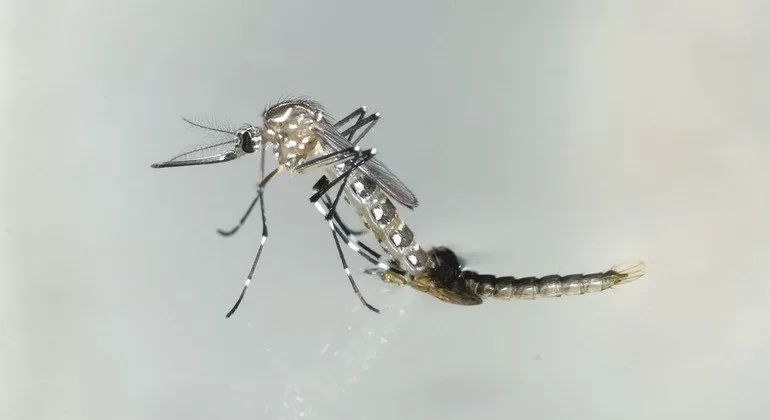In a startling development that underscores the evolving landscape of global health threats, Brazil finds itself grappling with an unprecedented crisis as dengue fever sweeps across the nation. Once confined to tropical climates, dengue has now emerged as a formidable adversary, exacerbated by factors such as climate change and urban sprawl. This article delves into the depths of Brazil’s struggle against dengue, shedding light on the challenges posed by the simultaneous circulation of all four virus serotypes and highlighting the pivotal role of genomic surveillance in guiding effective control and prevention strategies.
Dengue fever, caused by the Dengue virus (DENV) of the Flaviviridae family and primarily transmitted by Aedes mosquitoes, has emerged as a significant global health threat affecting regions inhabited by 3.9 billion people. The virus comprises four serotypes (DEN-1, DEN-2, DEN-3, and DEN-4), all capable of causing human infection, with potential manifestations ranging from mild fever to life-threatening conditions such as dengue hemorrhagic fever and dengue shock syndrome.
Brazil’s battle against dengue has intensified in recent years, with a dramatic surge in cases from several hundred thousand annually in the early 2000s to unprecedented numbers in recent times, ranging from 1.4 million to 1.7 million reported cases last year. According to the Brazilian Ministry of Health, the country has witnessed a 38.2% surge in dengue cases from July 2023 to the present, with 305,190 probable infections reported, surpassing historical endemic channel limits. Tragically, 127 deaths have been recorded, primarily in the Southeast, Central-West, and Northeast regions.
Of particular concern is the simultaneous presence of all four DENV serotypes, posing new challenges in Brazil’s longstanding battle against the disease. This scenario diminishes immunologic defenses individuals may have had and likely contributes to sustained high infection rates. Compounded by societal issues such as inequality and inadequate urban planning, the outbreak’s impact on essential services is exacerbated, particularly in densely populated areas, which have become hotspots for dengue transmission.
Against this backdrop, genomic surveillance emerges as a vital tool in Brazil’s fight against dengue. By sequencing the virus’s genome, researchers can track genetic changes in DENV, identify new variants, and assess changes that may affect vaccine effectiveness, thereby informing targeted public health interventions.
The recent introduction of the Qdenga vaccine in Brazil represents a significant milestone in the country’s efforts to combat dengue. Administered by Brazil’s Unified Health System (Sistema Único de Saúde), along with a donation of 1.32 million doses from Takeda Pharma, the vaccine holds promise in reducing the disease’s spread and severity. However, challenges remain, including limited vaccine supply and the need for expanded vaccination strategies to address shortages and ensure broader population coverage.
Dengue fever’s global impact extends beyond Brazil’s borders, with the World Health Organization (WHO) and the Pan American Health Organization highlighting its significant global challenge. The WHO’s latest global dengue report underscores the urgent need for improved vector control, enhanced public health surveillance, and international collaboration to address the growing threat posed by dengue worldwide.
As Brazil confronts this crisis, the global community must unite in addressing the interplay of environmental changes, public health infrastructure, and scientific innovation in combating dengue. By bolstering vaccine coverage, enhancing vector control measures, and fostering international cooperation, there is hope for stemming the tide of dengue not only in Brazil but worldwide.












